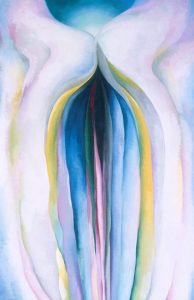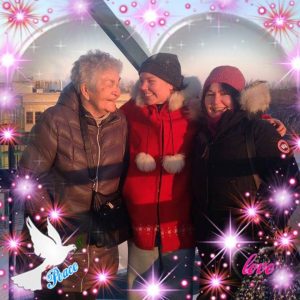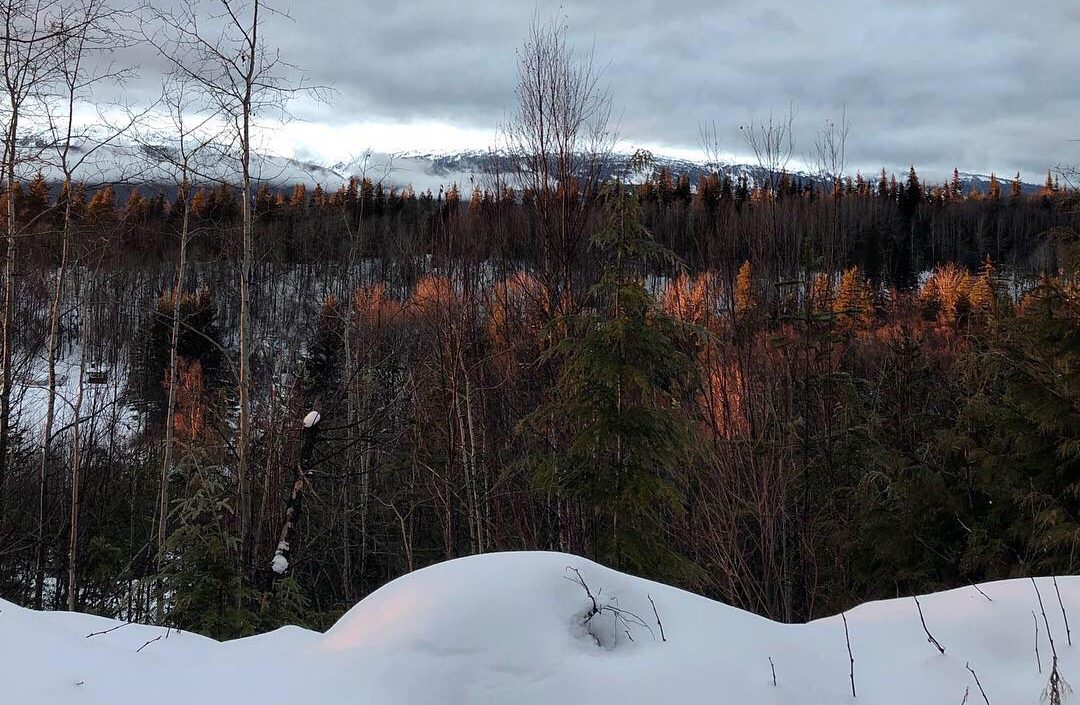Welcome!
My name is Georgia, after Georgia O’Keefe.

Grey Lines with Black, Blue and Yellow – Georgia O’Keefe (1923)
I am of mixed white settler and Cree ancestry. My maternal great-grandmother, Josephine Dysart, is Cree from South Indian Lake. My only living grandparent is her daughter, my kookum, Eva who lives in The Pas, Manitoba. My other ancestors arrived to North America (many through the US) 100-200+ years ago from England, Germany, Ukraine and Scotland.

Kookum, me, Auntie Susan in Winnipeg
I had the privilege of growing up on the north shore of Lake Superior in Thunder Bay, Ontario, part of the Robinson-Superior Treaty territories- an agreement signed between the Ojibwe people and the Crown in the 1800s. To learn about the state of Indigenous relationships and wellness in Thunder Bay, I recommend listening to Canadaland’s new podcast on Thunder Bay and reading Tanya Talaga’s book Seven Fallen Feathers. Both affirm Indigenous strength and resilience, the ongoing violence of settler colonialism, and a deep need for decolonization and the emergence of radical imaginations and actions, like reconfiguring local power and policing structures.
In 2012, I moved to Vancouver where I began a BA in First Nations and Indigenous Studies… Today I land here— the course blog for English 470 99C. This is my final course before completing my BA. Having been out of school last semester, I’ve missed having a community to discuss socio-political issues, ideas and to critically examine texts and media with. The last English course I took at UBC with “Indigenous” content was wildly disappointing (the prof chose to centre Joseph Boyden’s work after his identity scandal was covered by media outlets nationwide and it took convincing for her to share this news with the first year class), but I am hopeful. The themes of home and story are near and dear to my heart. I’m grateful to see Indigenous content included and glad that the prevalence of colonial narratives in Canada are being highlighted and unpacked. I’m curious about why two Thomas King texts were selected and why primarily men’s voices are centred in the syllabus. I’d love to see more Indigenous women, trans, two-spirit, queer voices centred in courses – Lee Maracle, Leanne Simpson, Tanya Talaga, Cherie Dimaline, Alicia Elliot, Gwen Benaway, Billy Ray Belcourt, Tracey Lindberg.
(added note- I see now that we will be reading a piece by Lee Maracle. Thank you.)
I’ve just arrived to an off-grid cabin north of Terrace, BC, on Nisga’a territories. I will be writing, sharing and learning from here for nearly 3 months, alone, in silence. I’m hopeful that the satellite internet will run well enough for me to complete this course successfully, but, because of limited bandwidth my engagement might be limited. Wildly enough, this course is the only thread connecting me to the world beyond the quiet of the mountains, the flow of the river, the noise in my mind.
Thank you for visiting- looking forward to learning and growth.
